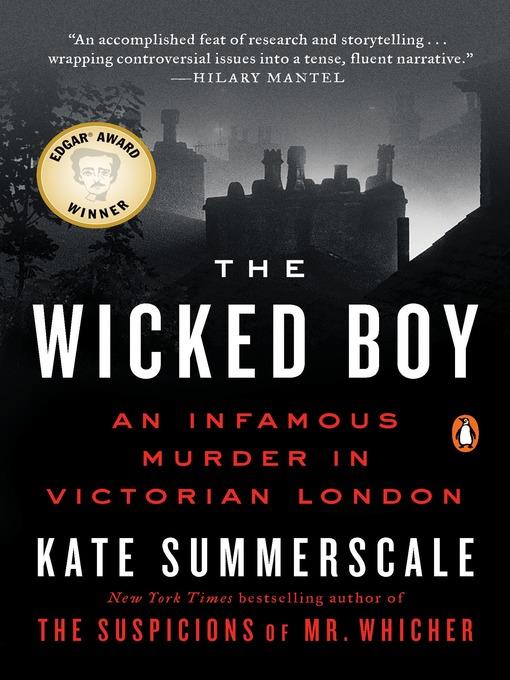
The Wicked Boy
An Infamous Murder in Victorian London
کتاب های مرتبط
- اطلاعات
- نقد و بررسی
- دیدگاه کاربران
نقد و بررسی

Starred review from May 2, 2016
Summerscale (The Suspicions of Mr. Whicher) bolsters her reputation as a superior historical true crime writer with this moving account of Victorian-age murder that is a whydunit rather than a whodunit. In East London during the summer of 1895, 13-year-old Robert Coombes and his younger brother, Nattie, attended a heralded cricket match on their own, telling neighbors that their mother was in Liverpool visiting family. In fact, Emily Coombes was already lying dead in her bed behind a closed door, having been fatally stabbed by Robert. Horrifically, her corpse remained undetected for well over a week while the brothers acted as if nothing were amiss. Upon arrest, Robert claimed he acted after his mother had beaten Nattie, and before she could do the same to him. The resulting trial focused on the question of Robert’s mental state, whether he was really the wicked boy of the book’s title, and how the penny dreadfuls he was so fond of may have warped his mind. Summerscale’s dogged research yields a tragedy that reads like a Dickens novel, including the remarkable payoff at the end.

June 1, 2016
Summerscale's (The Suspicions of Mr. Whicher) book about Victorian child murderers Robert and Nattie Coombes starts out as a standard true crime read and ends with what was clearly a surprise to the author. That Robert killed his mother at age 13 was never a question--he admitted it freely in a confession--but the subsequent trial of a defendant so young and his sentencing to Broadmoor asylum rather than a prison (or a hanging) was sensational to Victorian newspaper readers. What happened next, however, was shocking. Coombes's incarceration seems to have actually benefitted him, contrary to the common notion of the affects of 19th-century asylum life. His service in World War I at Gallipoli was notable, and most important, his postwar life in Australia was quiet and uneventful, save for his rescue of a neighbor boy from an abusive home, a situation with which Coombes was all too familiar. Summerscale's research reveals that early tragedy for Coombes need not be his end, like it would have been for many, but that it would later provide him with a way to help another young boy in need. VERDICT For true crime readers, history buffs, and fans of the grittier side of Victorian life.--Amelia Osterud, Carroll Univ. Lib., Waukesha, WI
Copyright 2016 Library Journal, LLC Used with permission.

























دیدگاه کاربران